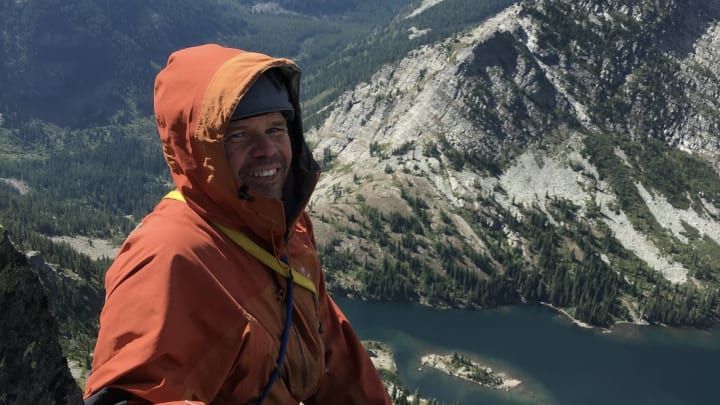Overcoming a Tragedy and Moving on With Marc Venery

On May 19, 2013, Marc Venery and Mason Robison were working through pitch 27 on El Capitan's Muir Wall in Yosemite National Park. Robison, who was 38 at the time, was leading while Venery, 48, belayed him.
At roughly 2,300 feet above ground, the morale was high as the pair grew closer to reaching the top of the route. Both individuals were experienced climbers and were well-prepared for such a challenge. They steadily made their way up the wall and had enough supplies to get them through.
After spending 5 nights on the wall, the team was eager to continue their adventure. Approximately 20 feet above the belay station, Robison placed a camming device behind a large block and weighted it. The block quickly gave out, causing Robison to plummet past the belay station where Venery stood. After an initial tightening of the rope, sudden slack was given, indicating that the rope had been severed.
Robison fell 250 feet. A haul line was attached to Robison’s harness, stopping his fall. However, due to the force, he was killed immediately. His climbing partner, Venery, was rescued by Yosemite Search and Rescue (YOSAR) and survived the accident.
In an interview on July 24, 2024, Marc Venery shared his experience with recovering from the emotional trauma. “Survivor’s guilt is a terrible burden, and talking about it is important, whether it’s a friend, a family member, or a therapist.” He shared that this situation brought truth and meaning to his life.
Venery noted that while there is inherent risk with climbing, there wasn't a series of events leading up to this tragedy. He stated, "A lot of things can go out of control step-by-step, but with this situation, it was a loose block that pulled and that was it." Before this, their trip had been running smoothly.
Following the accident, Venery felt heavy emotion as he grieved his climbing partner. Despite this, he was able to learn how to cope and demonstrated endless resilience. He decided it was time to get back out on the rock.
“One of my main partners said, ‘Let’s go climbing.’ Once I started again, I was able to separate it [climbing] from what happened. I could still find pleasure and joy,” he stated.
Venery eased himself back into the sport, starting by following routes rather than leading. Near his home in Montana, there is a local sport crag where he continued his endeavors. Venery reports that he did not feel a pull to return to big wall climbing on El Cap after the incident, but he has visited the base of the colossal wall since.
Venery reflected on the tragedy and stated, “It [the accident] caused me to examine my own life and realize what’s important, what time we have, where we put our energy, and what we focus on." While he still feels intense emotion revolving around the incident, Venery has worked toward healing and recovery.
Today, Venery continues to live an adventurous life. Rather than climbing big walls, Venery and his wife have started sailing together. “With aging and seeing a natural decline in ability and physicality, it was time to pursue a new path. We’re climbing less now and our lives revolve around the sailboat that we bought.”
Venery is optimistic and hopeful for the future, stating, "This is the new adventure that we’re taking."
